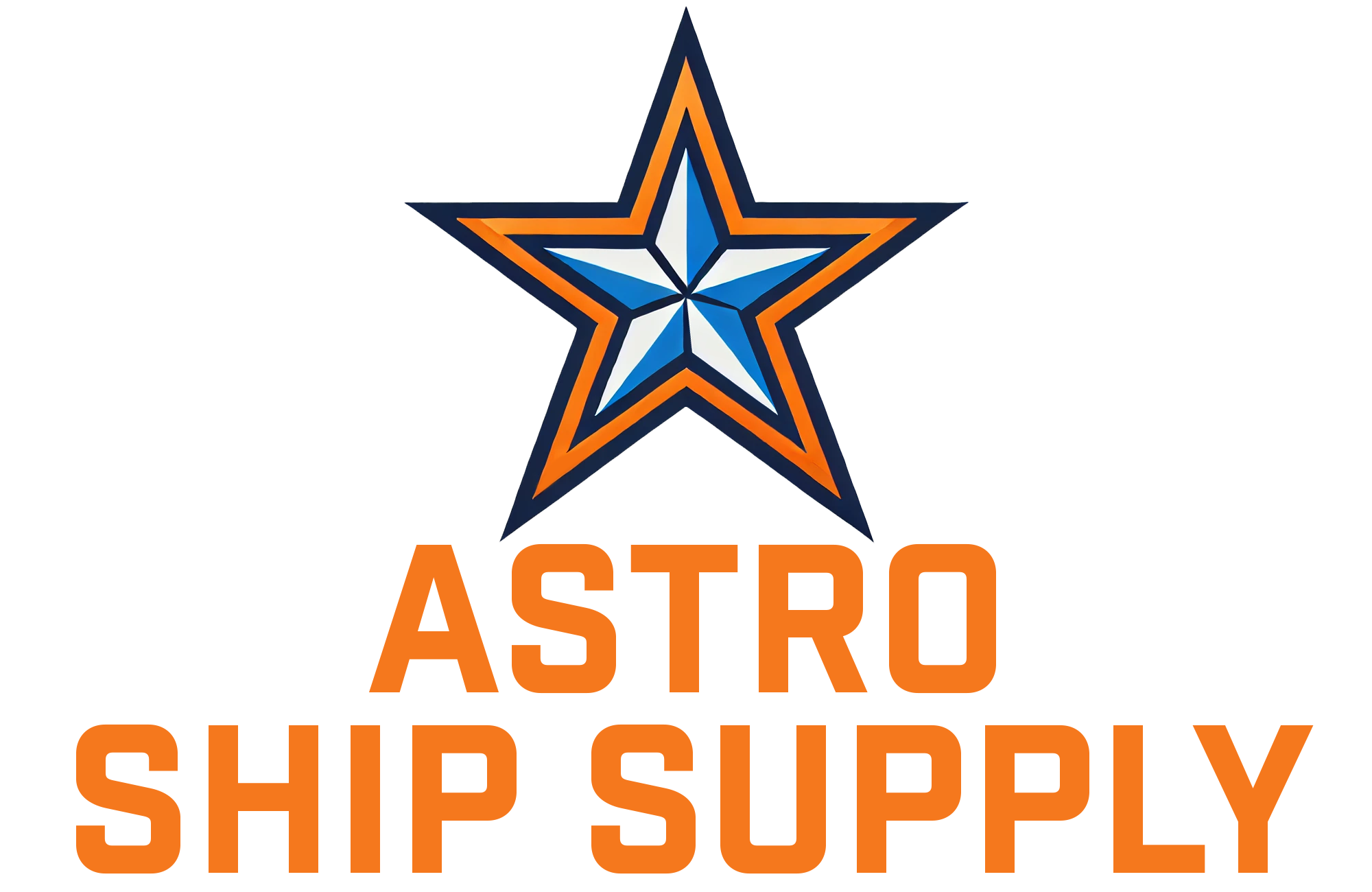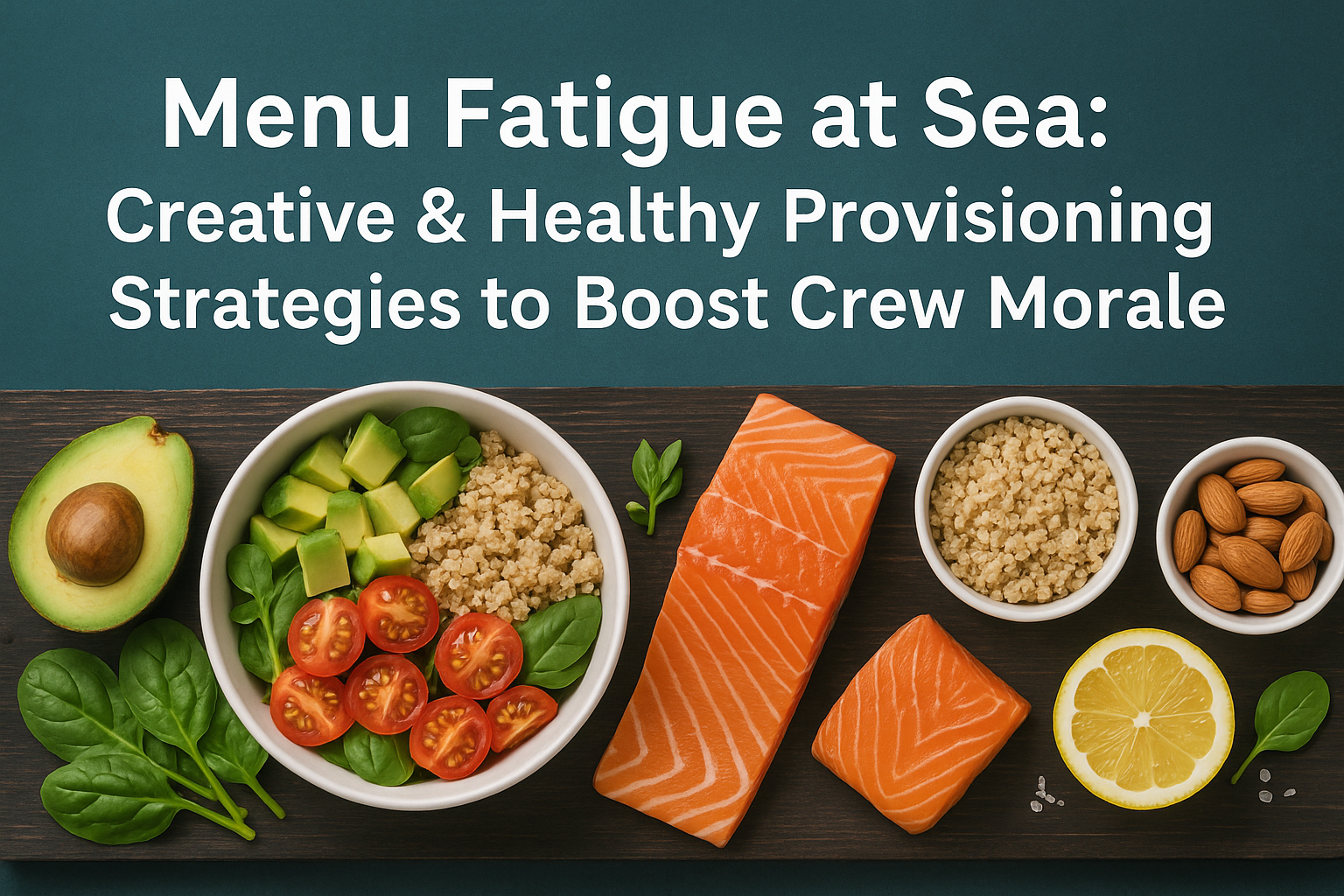
The Silent Saboteur: Understanding Menu Fatigue at Sea
Menu fatigue isn’t just about boredom; it’s a complex psychological and physiological phenomenon that can impact various aspects of maritime life. When crew members face the same limited options day after day, week after week, their enthusiasm for meals wanes. This can lead to:
- Reduced Appetite and Nutritional Deficiencies: Disinterest in food can lead to skipping meals or consuming only palatable but less nutritious options, potentially resulting in vitamin deficiencies and general malaise.
- Decreased Morale and Job Satisfaction: Food is a fundamental source of comfort and enjoyment. When this aspect of daily life becomes monotonous, it significantly impacts overall mood and satisfaction, making long voyages feel even longer.
- Lower Productivity and Focus: A dispirited crew is less engaged and less efficient. Nutritional imbalances can also affect cognitive function and energy levels, directly impacting performance and safety.
- Increased Waste: If crew members are unenthusiastic about the food, they may eat less, leading to more leftovers and discarded provisions, which impacts your budget and sustainability efforts.
- Potential for Conflict: Small annoyances can fester in confined spaces. Food-related complaints can become a source of tension among crew members and with galley staff.
Beyond Basic Sustenance: The Role of Food in Maritime Well-being
Think of food on board as more than just fuel. It’s a key component of:
- Psychological Comfort: Familiar and varied meals can evoke feelings of home, providing a much-needed psychological anchor during long periods away.
- Social Cohesion: Mealtimes are often the primary social events on a vessel. Shared, enjoyable meals foster camaraderie and strengthen team bonds.
- Physical Health: Proper nutrition is crucial for maintaining physical strength, preventing illness, and supporting recovery from injuries, all vital for a demanding maritime environment.
Understanding these profound impacts highlights why addressing menu fatigue is not merely a nicety but a strategic imperative for any responsible vessel operator.
Strategic Provisioning: Unlocking Culinary Creativity at Sea
The good news is that menu fatigue is a solvable problem. It requires a thoughtful approach to provisioning that goes beyond simply ordering the cheapest or most readily available items. Here are Astro Ship Supply’s top strategies for transforming your galley into a culinary haven:
1. Diversify Your Protein Sources: Beyond the Usual
Often, menus revolve heavily around beef and chicken. While staples, an over-reliance on them quickly leads to monotony. Consider incorporating:
- Fish and Seafood: Given your proximity to the ocean, fresh or quality frozen fish (salmon, cod, snapper, shrimp) can offer a vast array of cooking possibilities and vital omega-3 fatty acids.
- Pork: Versatile cuts like tenderloin, chops, or even sausages can add variety.
- Legumes and Plant-Based Proteins: Lentils, chickpeas, black beans, tofu, and quinoa are excellent, cost-effective, and highly nutritious alternatives that can be prepared in numerous ways (curries, stews, salads, burgers).
- Processed Meats (in moderation): High-quality deli meats, sausages, and bacon can be used to add flavor and texture to dishes, but should not form the bulk of the diet.
2. Embrace the World of Vegetables and Fruits
This is where true culinary creativity blossoms. Don’t limit yourselves to potatoes and carrots. Explore:
- Root Vegetables: Sweet potatoes, parsnips, turnips, and beets offer different flavors and textures for roasting, mashing, or incorporating into stews.
- Leafy Greens: Cabbage, spinach, kale, and collard greens are packed with nutrients and can be sautéed, added to soups, or used as salad bases.
- Cruciferous Vegetables: Broccoli, cauliflower, and Brussels sprouts are versatile and can be roasted, steamed, or stir-fried.
- Canned and Frozen Options: While fresh is ideal, high-quality canned (e.g., tomatoes, corn, peas) and frozen (e.g., mixed vegetables, berries) options are excellent for maintaining variety and nutrient content on long voyages.
- Seasonal Availability: When possible, align your fresh produce orders with seasonal availability in the Gulf Coast region to ensure peak freshness and flavor.
3. Spice It Up: The Power of Herbs, Spices, and Condiments
Even the simplest ingredients can be transformed with the right flavor profiles. A well-stocked spice cabinet is invaluable. Consider including:
- Global Spices: Cumin, coriander, turmeric, paprika, chili powder, garam masala, curry powder – these open up a world of international cuisine.
- Dried Herbs: Oregano, basil, thyme, rosemary, bay leaves – fundamental for Mediterranean and European dishes.
- Fresh Aromatics: Onions, garlic, ginger, and chilies are foundational to countless dishes and add immense depth of flavor.
- Vinegars and Oils: Balsamic, apple cider vinegar, soy sauce, sesame oil, olive oil – these are essential for dressings, marinades, and flavor enhancement.
- Condiments: Mustards, hot sauces, chutneys, and relishes can add a quick burst of flavor and customization for individual crew members.
4. Strategic Planning and Menu Rotation
This is perhaps the most critical component. A robust menu plan should:
- Rotate Meals: Aim for at least a 7-10 day rotation of main dishes, ideally more, to prevent repetition.
- Theme Nights: Introduce themed meals (e.g., “Italian Night,” “Mexican Fiesta,” “Asian Stir-Fry”) to add excitement and encourage diverse culinary experiences.
- Crew Input: Periodically solicit feedback and suggestions from the crew. This not only provides valuable insights but also empowers them and boosts morale.
- Flexibility: While planning is crucial, be prepared to adapt based on available provisions and crew preferences.
5. Quality Over Quantity: The Astro Ship Supply Difference
At Astro Ship Supply, we pride ourselves on delivering premium provisions. Our commitment to quality control throughout our Texas-based supply chain means:
- Fresh Produce: Sourced from trusted local and regional suppliers whenever possible.
- Frozen Goods: Stored and transported under strict temperature controls to maintain freshness and integrity.
- Strict Compliance: Our operations adhere to HACCP food safety management and are compliant with the Texas Department of State Health Services, ensuring every item meets rigorous maritime standards.
Choosing a reliable chandler like Astro Ship Supply means you receive top-tier products, reducing waste and ensuring the nutritional value of your crew’s meals.
Comparative Analysis: Traditional vs. Innovative Provisioning
Let’s look at how a traditional, less varied approach compares to an innovative, crew-centric provisioning strategy:
| Feature | Traditional Provisioning | Innovative Provisioning (Astro Ship Supply Approach) |
|---|---|---|
| Menu Variety | Limited protein and vegetable options; repetitive meals. | Diverse proteins, extensive fresh/frozen produce, global spice options; dynamic meal rotation. |
| Crew Morale | Low, due to boredom and lack of culinary interest; potential for complaints. | High, with increased satisfaction, enjoyment, and appreciation for meals. |
| Nutritional Value | Risk of deficiencies due to limited choices; reliance on less healthy processed options. | Balanced and varied diet promoting overall health and well-being. |
| Food Waste | Higher due to uneaten or unappealing meals. | Lower, as crew members are more likely to consume enjoyable and varied food. |
| Operational Impact | Decreased productivity, potential for crew health issues, longer perceived voyages. | Improved crew focus and energy, reduced health risks, enhanced overall vessel efficiency. |
| Cost Efficiency (Long-term) | Appears cheaper initially, but hidden costs in waste, low morale, and potential health issues. | Higher initial investment, but significant long-term savings from reduced waste, improved productivity, and lower crew turnover. |
| Chandler Relationship | Transactional; focus on basic delivery. | Partnership; focus on customized solutions, quality, and crew well-being. |
Case Study: Transforming the Galley Onboard the MV Ocean Guardian
The MV Ocean Guardian, a bulk carrier operating regular routes across the Gulf of Mexico, faced significant challenges with crew morale due to persistent menu fatigue. The vessel’s master reported increasing complaints about meal repetition and a noticeable decline in energy levels among the crew. Traditional provisioning focused on cost-cutting, often resulting in a limited selection of inexpensive, less inspiring ingredients.
The Challenge:
- Low crew morale linked to repetitive meal options.
- Increased food waste due to disinterest in meals.
- Concerns about crew nutrition and long-term health.
- Inefficient provisioning process lacking variety.
The Astro Ship Supply Solution:
Astro Ship Supply partnered with the MV Ocean Guardian’s management to implement a comprehensive, customized provisioning strategy:
- In-depth Consultation: We conducted a thorough review of their previous provisioning lists and engaged with the vessel’s cook and a few crew representatives to understand their preferences and dietary restrictions.
- Diversified Provisions: Our team curated a revised order list that included a wider array of protein sources (lamb, various fish, plant-based options), seasonal fruits and vegetables, and an expanded selection of international spices and condiments.
- Menu Planning Support: We provided sample menu rotation templates and recipe suggestions that leveraged the newly diverse provisions, encouraging the cook to experiment with new dishes.
- Quality Assurance: All provisions were delivered with Astro Ship Supply’s rigorous quality control, ensuring freshness and compliance with food safety standards.
The Results:
- Significant Morale Boost: Within the first month, the master reported a dramatic improvement in crew morale. Mealtime became an anticipated event, with crew members expressing excitement over new dishes.
- Reduced Food Waste: With more appealing options, food consumption increased, leading to a noticeable reduction in waste and better utilization of provisions.
- Improved Crew Well-being: Anecdotal evidence suggested improved energy levels and overall health among the crew, attributed to a more balanced and enjoyable diet.
- Enhanced Productivity: A happier and healthier crew translated directly into increased focus and productivity during shifts.
- Long-term Partnership: The MV Ocean Guardian transitioned to Astro Ship Supply as their primary chandlery partner, recognizing the value of a proactive and quality-focused approach to provisioning.
This case study illustrates that while initial costs might seem higher for diversified provisions, the long-term benefits in crew well-being, productivity, and reduced waste far outweigh the investment.
Actionable Strategies for Your Vessel: Quoatable Checklist
To combat menu fatigue effectively, consider implementing these strategies:
- Regularly survey crew for food preferences and dietary restrictions.
- Plan menus at least 2-3 weeks in advance, aiming for minimum 10-day rotation.
- Prioritize fresh and seasonal produce from your chandler whenever possible.
- Invest in a diverse array of international spices and cooking oils.
- Include plant-based meal options at least twice a week.
- Encourage the cook to explore new recipes and culinary techniques.
- Utilize frozen and canned goods strategically for variety and longevity.
- Consider small treats or ‘comfort food’ days to break monotony.
- Partner with a reliable ship chandler like Astro Ship Supply for quality and variety.
- Maintain strict inventory management to minimize waste and ensure proper stock rotation.
Beyond Provisions: A Holistic Approach to Crew Comfort
While food is paramount, crew well-being is a multifaceted challenge. Astro Ship Supply offers a comprehensive range of services that contribute to a comfortable and efficient environment onboard. Beyond premium provisions, we also provide:
- Deck Supplies & Equipment: Ensuring the vessel is well-equipped for safe and efficient operations.
- Cabin & Accommodation Essentials: From bedding to toiletries, ensuring crew living quarters are comfortable and well-stocked.
- Bonded Store: Providing duty-free goods for crew enjoyment and morale boost, offering significant savings and a touch of luxury at sea. (Read more about the strategic advantage of bonded store services in our press release: Unlock Savings & Boost Crew Morale: The Strategic Advantage of Bonded Store Services)
Our integrated approach means you can rely on a single, trusted partner for all your vessel’s needs, simplifying logistics and ensuring consistent quality across the board. Our 24/7 support via email, text, or phone ensures you’re always connected, no matter where your journey takes you.
We are proud of our certifications and compliance, including ISO 9001:2015 for Quality Management System, HACCP for Food Safety Management, and adherence to the International Ship and Port Facility Security (ISPS) Code, ensuring that “Excellence in Every Delivery” is not just a motto but a guarantee.
Conclusion: Investing in Your Crew Is Investing in Your Success
Menu fatigue at sea is a real and impactful issue, but it’s one that can be effectively mitigated with strategic provisioning and a focus on crew well-being. By diversifying meal options, embracing global flavors, and partnering with a reliable and quality-focused ship chandler like Astro Ship Supply, you can transform your vessel’s galley into a source of comfort, satisfaction, and improved morale.
Remember, a well-fed crew is a happy crew, a productive crew, and ultimately, a safer and more efficient crew. Make the choice that makes the difference. Request a quote today and discover how Astro Ship Supply can help you navigate culinary horizons with confidence and excellence.
FAQ: Frequently Asked Questions About Ship Provisioning
What is menu fatigue at sea?
Menu fatigue at sea refers to the boredom, disinterest, and lack of appetite experienced by crew members due to repetitive meal options over long voyages. It can lead to decreased morale, nutritional deficiencies, and reduced productivity.
How can diversified provisioning improve crew morale?
Diversified provisioning, including a wide variety of proteins, fresh produce, and global flavors, keeps meals exciting and enjoyable. This reduces boredom, increases satisfaction, and signals to the crew that their well-being is valued, directly boosting morale and job satisfaction.
What types of provisions does Astro Ship Supply offer to combat menu fatigue?
Astro Ship Supply offers a comprehensive range of premium provisions designed to combat menu fatigue. This includes:
- Premium food products: Fresh and frozen meats, poultry, fish, and plant-based proteins.
- Diverse produce: A wide selection of fresh fruits, vegetables, and greens.
- Global ingredients: Extensive range of spices, herbs, oils, sauces, and condiments to facilitate international cuisine.
- Beverages: A variety of non-alcoholic and duty-free options.
- Specialty items: Catering to specific dietary needs or preferences upon request.
Are Astro Ship Supply’s provisions compliant with food safety standards?
Absolutely. Astro Ship Supply maintains stringent quality controls and complies with all relevant international and U.S. regulations, including ISO 9001:2015 Quality Management System and HACCP Food Safety Management. We are also compliant with the Texas Department of State Health Services, ensuring the highest standards of food safety and quality from our supply chain to your vessel.
How can vessel operators plan for better menu rotation?
Effective menu rotation involves:
- Creating a detailed menu plan for at least 7-10 days, ideally longer.
- Varying protein sources, cooking methods, and side dishes daily.
- Incorporating themed meals (e.g., “Taco Tuesday,” “Curry Night”).
- Seeking input from the crew and galley staff for new ideas and preferences.
- Utilizing a diverse inventory of spices and international ingredients to transform familiar dishes.
A reliable chandler can also provide guidance on available seasonal products to aid in rotation.






